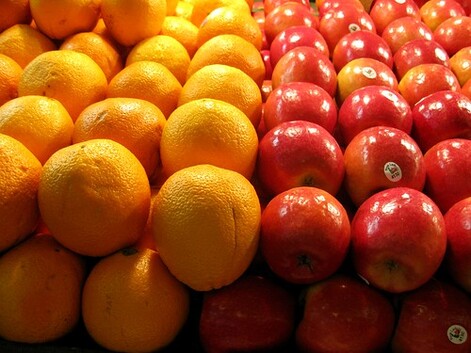all of the selves we Have ever been
 “A mind is a terrible thing to waste.” Arthur Fletcher, United Negro College Fund “In my head I was thinking.” The speaker loses me right there. His brain may be a luxury liner, and he may be about to tell me the secrets to world peace, climate change reversal, and how to grow thicker, more luxurious hair, but my thoughts dive overboard. I replay his words while awaiting underwater rescue: “In my HEAD I was thinking.” “In my head I was THINKING.” I want to interrupt the speaker and ask, “Where else would you be thinking?” But my son’s insistent voice tugs on my mind in the same urgent way that he pulls on my arm in a department store when I am about to confront a shoplifter: “Mom, it doesn’t work that way anymore.” Oh! And uh-oh! Another reminder that I am either touched or out of touch, drowning in a sea of changes. The most fundamental truths no longer hold water: now we must qualify where our thoughts come from. No expert, but ever curious about why people do what they do and say what they say, I take a deeper dive. What better arena to find people talking than in politics? I listen. I try to grasp the thoughts behind the words. I try different news sources, and then I ask myself: Did that really come out of the head of a person educated at Penn? Yale? Harvard? Stanford? Pretty pricey educations. And in my head I think I have found the reason to forgive student loans. Just to be sure it’s not just me struggling with the question of where thought comes from I turn to a friend about one of her recent experiences. Needing assistance in a store, my friend approached the customer service desk where another woman was already waiting for help. No one came to staff the desk. After waiting a bit, the women approached an employee stationed in the self-checkout area to assist customers who, shockingly, were having problems with self-checkout. On the surface, it seemed like the customer service representative and the two women shared the same language, but this customer request for a manager or someone to assist them just did not seem to compute in the young employee’s head. Finally, he pulled a response from the same pocket where he keeps his much smarter phone: “There’s no one here that can help you.” End of discussion. Problem unsolved. My friend, a very bright woman who carries a big engine in her own head, persisted, “Well, who would you call if the store caught on fire?” That seemed to get the lights flickering in the young man’s eyes: “Oh! That would be Tom?” “Well, could you call Tom?” Tom never appeared but the two women with the thinking heads solved their own problems. Back at home, I watch a neighbor walk down our shared hallway, dripping and dropping food onto the carpet as he goes. Not unnoticeable, and yet he keeps walking. Keeps dropping. Keeps spilling. And steps in it! Days pass. No attempt is made to clean up the mess. His smart phone is on and updated, but his beautiful head is on lockdown. At work people appear to be busy on their computers. They receive a constant stream of music and podcasts from their earbuds. As their minds process all of that sensory stimulation, I wonder: where do they think? And when? I would ask them, but they can’t hear me. Wonderful people I’ve known for a lifetime are suddenly up in arms about a variety of conspiracy theories. Salacious, crazy ideas picked ripe from the internet and social media are turning their good minds into debris fields. No thought or fact checking required. All of their mental input is handpicked and arranged by AI the new thought generator. I contemplate the notion of “artificial” intelligence. Is that an oxymoron? Or a bad substitute like ill-fitting dentures? Whatever AI is, it bears a shocking resemblance to the artificial additives that enhance the color, flavor, shelf-life, and addictive qualities of processed food. All of the flavor but none of the calories. And none of the nutrition. Seems to me the food giants do their thinking in their wallets. Never mind that artificial ingredients have led to an obesity epidemic that is the leading cause of death in America. Perhaps they learned this approach from the tobacco industry whose product is known to kill one out of every two of its best customers. And so, in my head, I ponder: What does this new artificial substitute for thought mean for our minds? After tobacco, it was food. Now it is technology. We are already experiencing AI poisoning. Maybe we will eventually kill each other. And like the tobacco and food companies before them, big tech owners will stand back and claim it was all “freedom” regardless of their industry’s psychological manipulation. But, by then, the big tech guys will own all the real estate on Mars and the only rockets to get there. Don’t you love freedom? The life of the mind is under siege. The future of thought is not looking good. What is to become of that vault of jewels that makes us human, the many faceted gems of thought, wonder, creativity, and empathy polished by time, experience, education, flexibility, maturity, and relationships? What happens when our heads are as junk-clogged as our arteries? A poor swimmer in these uncharted waters I doggy paddle to stay afloat. I conclude that psychologically manipulated information--no matter the volume--is not thought any more than Cheetos are nutrition. To the in-my-head-I-was-thinking-guy—I owe you an apology. And some credit for trying.
2 Comments
 I am developing a bad attitude about apples. It started with oranges. Have you tried to peel an orange lately? Even utilizing a bona fide citrus peeler, the task is hopeless. It would be easier to remove my own gall bladder. All it takes is a Q-tip and a quick swab of my cheek to get all the way down to the roots of my family tree and come back up with the names of my Cro-Magnon ancestors. How can it be this hard to get down to the flesh of an orange? Why couldn’t the Garden of Eden have been in Florida? If the snake had offered Eve an orange instead of an apple, we’d still be lying on the beach sporting perfect figures. Dirty laundry never would have been invented. Like Eve, all of this talk of fruit arouses my curiosity. I find myself being seduced by the snakes on the modern tree of knowledge, the internet. I type in the question, “how to peel an orange.” The tree of knowledge answers with 68,200,000 results. I am suddenly aware that I must be the only person in the world who does not know how to peel an orange. I am ashamed. I click on the first entry, 68,199,999 to go, and I discover that oranges originated in Southern China. OMG! Does the President know about this? Upon further reading, I learn the orange is not a wild fruit meaning it does not occur naturally—someone tinkered with the DNA…Call Mike Pompeo! I set aside my national security concerns for a moment while I gather intel that will help me blow the cover off my citrus. Basic structure: First, there is the rind. Well, everyone can see that. What I did not know is that the rind can be used to repel slugs from the garden. Hmm. Should I be acting on that knowledge? Beneath the rind is an inner rind called a pericarp or albedo. Sounds to me like early forms of the words for privates and libido. Apparently, Adam and Eve got bold and frisky after tasting the apple, and they bit into the rind of an orange. The rest is human history. There is a third layer described as threadlike white pith. At last! There is a name for that stuff that fuses to my fingers and sticks to my teeth! But not a word concerning what I can do about it. I guess I will just have to learn to live with it. Rounding the corner, I find that under all of those layers is the edible portion, the orange segments or carpel. And that explains the tingling and numbness in my thumb and index finger since I tried wrestling the peel from that orange. I think I have carpel-tunnel syndrome…the fruit-induced version. No more thumbs up for me. With my knowledge accumulating, I click on the second entry and learn that Christopher Columbus brought oranges to the New World in 1493. I groan. Isn’t that guy in enough trouble? Two clicks and I am quickly overwhelmed by information—all of it anxiety-provoking, and none of it helpful. My mother was right, “A little knowledge can be a dangerous thing.” You would think a mom might also have mentioned that we shouldn’t trust the advice of snakes. We can’t even trust the wholesome Osmond Brothers. One bad apple can spoil the whole darn bunch. So much for the fruit of the tree of knowledge. We’ve all paid a heavy price since the first couple took a bite out of the big apple. I think we should appeal our life sentence of pain and hard labor. Knowledge may be plentiful. It may be beautiful. It might even be terrific, but it doesn’t seem to be doing us much good. |
AuthorLilli-ann Buffin Archives
July 2024
Categories
All
|
 RSS Feed
RSS Feed